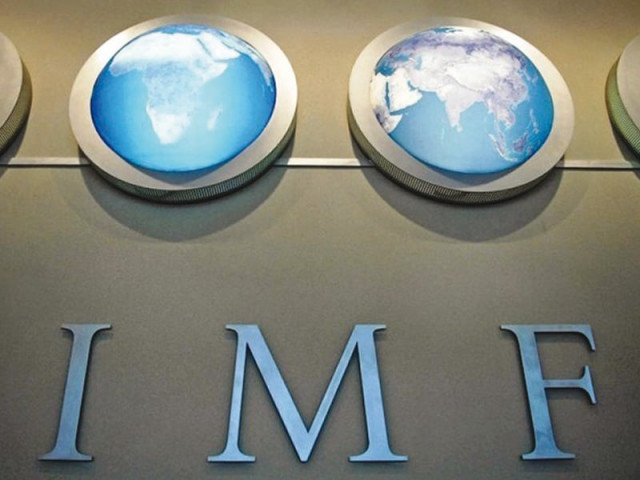Second review: IMF team cancels visit, not talks
Spokesperson says the next round of consultation will be held outside Pakistan around February 1.

IMF team cancels visit, not talks. PHOTO: FILE
International Monetary Fund (IMF) officials have cancelled their visit to Pakistan and will now hold their next consultations with Pakistani authorities on its current programme abroad, an IMF spokesman said on Friday.
The rescheduling was made following a spate of violence in the country.
“We have made the decision to hold consultations for the second review of our current programme in Pakistan outside the country. We remain fully committed to the IMF programme in Pakistan and look forward to holding future meetings inside the country as the security situation permits,” said IMF spokesperson William Murray in Washington during a press briefing, in response to an online question from Pakistan.
However, he seemed disinclined to get into the details of the venue set for the next round of negotiations.

“We expect a comprehensive meeting with the authorities around February 1st,” Murray added.
In upcoming talks, Pakistan and IMF will review the commitment made by Islamabad on different fronts.
IMF authorities during their visit in November had indicated that Pakistan was on track with reforms tied to a $6.7 billion loan package, but had cautioned the government to rebuild foreign exchange reserves.
The Washington-based lender had agreed to a three-year programme with Islamabad in September.
The government has, in line with the IMF’s recommendations to gradually eliminate subsidies, raised the power tariff for all consumers, except domestic consumers who use up to 200 units per month. Based on the findings of the audit — which will be prepared by the end of April — the government has designed a roadmap to prevent the accumulation and recurrence of payable arrears.
In the oil and gas sector, with new production, the government had assured to raise gas tariff to reflect full cost of the gas in the base tariff beginning with the next adjustment in January 2014.
The government also gradually plans to rationalise gas prices to encourage new investment, promote efficiency in gas use, and assure that there will continue to be no fiscal cost from the gas sector.
At the same time, the government is looking to privatise public sector enterprises (PSEs) with a focus on limiting poor performance and improving public sector resource allocation, and in this regard the cabinet committee tasked with the matter had already approved 31 PSEs for auction.
Furthermore, the privatisation commission has also approved floating some shares of the Oil and Gas Development Company Limited, Pakistan Petroleum Limited and Pakistan International Airlines.
The finance ministry had informed that beyond the current fiscal year, further revenue and expenditure measures will be implemented to achieve a sustainable deficit of around 3.5 per cent of GDP by 2016-17.
With improved collections and a broader tax base, Islamabad hopes to avoid the need for further increases in GST or income tax rates while achieving overall deficit targets. On the expenditure side, further reductions in untargeted subsidies will be undertaken in 2014/15 and 2015/16, along with steps to streamline wages and salary costs via civil service reforms.
“The government will also inform the IMF team about the steps taken so far to fulfill this commitment,” an official of the finance ministry said.
Published in The Express Tribune, January 25th, 2014.



















COMMENTS
Comments are moderated and generally will be posted if they are on-topic and not abusive.
For more information, please see our Comments FAQ